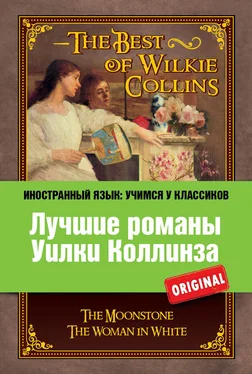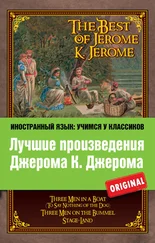Richardson– Samuel Richardson (1689–1761), an English novelist, the author of ‘Pamela’ and ’Clarissa’, most popular novels of the 18th–19th centuries
Mackenzie– Henry Mackenzie (1745–1831), a Scottish novelist, playwright and poet
Roscoe– William Roscoe (1712–1865), an English writer and politician
Robertson– William Robertson (1721–1793), a Scottish historian and one of the most prominent British historians of the 18th century
omens– an omen is a thing or event regarded as a sign or a warning of fortune
occult– magical, supernatural, secret
Oxford Street– one of the main streets in central London, a shopping centre of London
paletot– a coat
gaiters– a kind of stockings covering legs from knee to ankle, usually made of wool or leather
metamorphosis– change, often radical, caused by develop-ment or natural reasons
neophyte– a person newly converted to some religion or faith
catechism– religious instruction in the form of questions and answers
Rotterdam– an important European port, one of the largest cities in the Netherlands, first mentioned in 1283
garret– a small room in the roof or on the upper floor of the house
Bombay– now Mumbai, a large city in southwestern India, India’s commercial, financial and religious centre, the main port on the Arabic Sea
NOTE. – Wherever the Report touches on the events of the birthday, or of the three days that followed it, compare with Betteredge’s Narrative, chapters viii. to xiii.
Calais– a large port in northern France, located on the Straight of Dover, 34 km from England
Plymouth– a city and seaport in the county of Devon in the southwest of England
Kattiawar– Kattiawar Peninsula and province of the same name in west-central India, in Gujarat state
Dwarka– Dwarkeswar, a river and province in southeastern India, in West Bengali state
Krishna– one of the most worshipped Indian divinities, the eighth incarnation of the Hindu god Vishnu and the hero of the epic ‘Mahabharata’
Hindoo-Boodhist– the follower of Hindu-Buddhism, an In-dian variety of Buddhism, a phylosophicai and religious teach-ing of Buddha; Buddhism first appeared in the 4th century BC in northern India.
pilgrims– persons who go to some sacred religious place
breezes– a breeze is soft light wind
Padua– a city in northern Italy, west of Venice, first men-tioned in 302 BC
impromptu– smth. sudden, without preparation
Dante– Dante Alighieri (1265–1321), an Italian poet and philosopher, the author of the ‘Divine Comedy’, one of the world’s greatest works
the Hell of Dante– in the ‘Divine Comedy’, Dante makes a journey to Hell descending seven circles of the pit of Hell
phlegm– a type of character when a person shows little emo-tions, acts and thinks slowly
Esquire– a title written in the address of a letter after the family name
Cumberland– a historic county in the northwest of England bordering Scotland
guinea– money for which there are no coins or banknotes; it is still used in stating prices, charges and salaries.
the Regent’s Park– one of the main parks in central London (197 hectares), developed in 1810–1820 by John Nash, a famous city architect, for the Royal family and aris-tocracy
St. John’s Woodis located west of the Regent’s Park; Lord’s Cricket Ground was moved to St. John’s Wood in 1811.
Baronet– a title of hereditary nobility, lower in rank than baron
the Lake country– the Lake District, a national park famous for its beauty, located in the county of Cumbria; the largest lake is Windermere.
backgammon– a game for two players played on a special board with draughts and dice
eulogy– a speech or letter in which smb. is highly praised
chiffoniers– low cupboards used as tables
buhl– inlaid decoration of furniture
marquetterie– inlaid work for decorating furniture
Dresden– the capital of Saxony, a state in eastern Germany and the third largest city in eastern Germany
Goths– a Germanic tribe originated in southern Scandina-via; after defeating the Vandals they settled in the Baltic Sea region.
Charles the Fifth(1500–1558) – the Holy Roman Emperor (1519–1556); he inherited a Spanish and Habsburg empire ex-tending from Spain in the west to Austria in the east.
Titian(1488–1576) – the greatest Italian painter of the Vene-tian school of the Renaissance period
Raphael(1483–1520) – an Italian painter and architect of the Renaissance period; he is famous for his Madonnas.
Rembrandt(1606–1669) – a great Dutch painter and print-maker famous for the portraits of his contemporaries
plebeian– n a representative of lower classes; adj low, vulgar
chalet– a Swiss mountain wooden hut with sharply sloping roof
muslin– thin fine cotton cloth
Mozart– Wolfgang Amadeus Mozart (1756–1791), one of the greatest composers in the history of Western music
Syren– in Greek mythology, a woman with wings whose songs charmed the sailors and brought death to them
Читать дальше
Конец ознакомительного отрывка
Купить книгу












